Hives
If you are experiencing hives or any other skin condition, it is crucial to seek the expertise of a skin specialist at Pinnacle Dermatology. At Pinnacle Dermatology, our team of experienced dermatologists can provide a comprehensive evaluation of your condition. They will perform a thorough examination and may conduct tests to identify the specific triggers causing your hives. Based on these findings, our specialists will develop a personalized treatment plan tailored to address the root cause of your symptoms and alleviate your discomfort. By choosing Pinnacle Dermatology, you ensure that you receive the most effective and appropriate care for your skin condition.
Examples of Hives
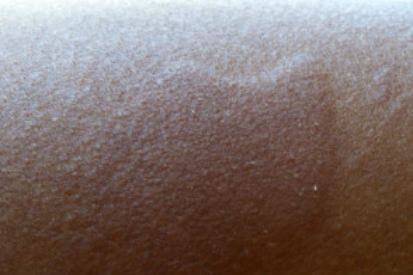
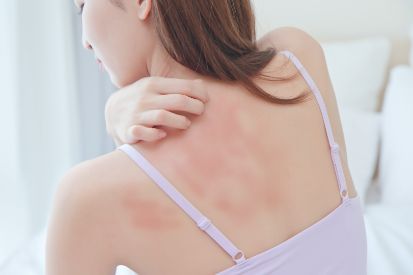
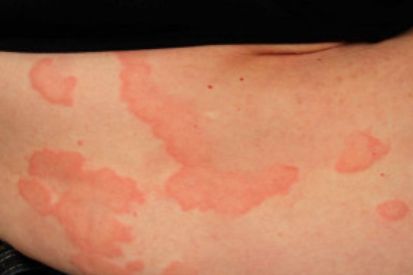
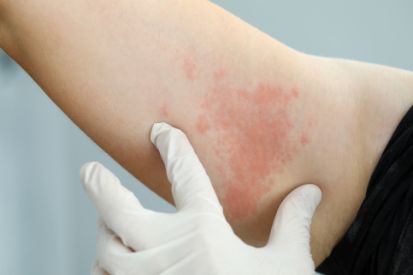
What are the Symptoms of Hives?
- Hives, or urticaria, is an itchy skin rash that present as raised, itchy welts on the skin that vary in size and shape.
- Hives can appear suddenly and often migrate, causing discomfort.
- Symptoms may resolve within hours but can persist.
- Severe cases can involve swelling of the face, lips, or throat, requiring prompt medical attention.
What are the Causes of Hives?
- Reactions to certain foods, medications, insect stings, or pollen.
- Viral or bacterial infections.
- The body's immune system mistakenly attacking its own tissues.
- Adverse reactions to certain drugs.
- Exposure to heat, cold, pressure, or sunlight.
- Emotional stress can trigger hives in some individuals.
- Chronic conditions like thyroid disorders or lupus.
How to Prevent Hives
FAQs on Hives
Hives can range from mild to severe and may vary in duration and frequency. Here are key indicators that you should consult a dermatologist:
Severity and Persistence: If your hives are severe, causing intense itching or discomfort, or if they persist for more than a few days without improvement, it's time to see a dermatologist. Chronic hives, which last for six weeks or longer, also warrant professional evaluation.
Recurrent Episodes: Frequent or recurrent episodes of hives should not be ignored. A dermatologist can help identify underlying causes or triggers and provide a management plan to prevent future occurrences.
Accompanying Symptoms: If your hives are accompanied by other concerning symptoms, such as difficulty breathing, swelling of the face, lips, tongue, or throat, or a feeling of tightness in the chest, seek immediate medical attention. These symptoms could indicate a more serious allergic reaction known as anaphylaxis, which requires urgent care.
Impact on Daily Life: If hives significantly interfere with your daily activities, work, or sleep due to discomfort or itching, consulting a dermatologist can provide relief and improve your quality of life.
Lack of Response to Over-the-Counter Treatments: If over-the-counter antihistamines or other remedies are not effectively managing your hives, a dermatologist can prescribe stronger medications or alternative treatments.
Yes, stress can trigger hives. Emotional stress releases chemicals like histamine, which can cause the skin to develop itchy, raised welts known as hives.
Managing Stress to Prevent Hives
To manage stress-related hives, dermatologists recommend:
- Stress Management Techniques: Practices such as deep breathing, meditation, and yoga.
- Regular Exercise: Physical activity to relieve stress.
- Healthy Lifestyle: Balanced diet, adequate sleep, and avoiding excessive caffeine or alcohol.
- Professional Support: Therapy for chronic stress.
- Relaxation Techniques: Progressive muscle relaxation and aromatherapy.
Consulting Pinnacle Dermatology
At Pinnacle Dermatology, our specialists provide comprehensive care for stress-related hives, including:
- Thorough Evaluations: Identifying stress as a trigger.
- Personalized Treatment Plans: Customized treatments and stress management strategies.
- Guidance and Support: Advice on lifestyle changes and stress reduction techniques.
If stress is causing your hives, seek professional help to manage and prevent outbreaks.
If you have an allergic reaction and develop hives, the first step is to identify and avoid the trigger if possible. For immediate relief, over-the-counter antihistamines like diphenhydramine (Benadryl) or loratadine (Claritin) can help reduce itching and swelling. Applying cool compresses to the affected areas and wearing loose-fitting clothing can also provide some comfort.
However, if the hives are severe, widespread, or accompanied by other symptoms such as difficulty breathing, swelling of the face or throat, or a rapid heartbeat, seek medical attention immediately, as these could be signs of a serious allergic reaction called anaphylaxis. In such cases, using an epinephrine auto-injector (if prescribed) and calling emergency services is crucial. After the acute reaction has been managed, follow up with a dermatologist to discuss long-term management and prevention strategies for future allergic reactions.
Yes, there are certain foods you should consider avoiding if you have hives, especially if they are suspected to be a trigger. Common food allergens that can cause hives include nuts, shellfish, eggs, milk, and certain fruits like strawberries or citrus. Additionally, foods containing high levels of histamine, such as aged cheeses, fermented foods, and alcohol, can exacerbate hives in some individuals. Keeping a food diary to track what you eat and when hives occur can help identify specific triggers.
If you frequently develop hives, it is advisable to consult with a dermatologist. They can perform tests to identify specific food allergies and provide a tailored dietary plan to help manage your condition. By avoiding known triggers and following professional advice, you can reduce the frequency and severity of hives, ensuring better overall health and comfort.
Treatment Options for Hives
Consulting with your dermatologist will provide the best treatment options for your specific condition. Schedule with us today.
Featured Blogs

- General Dermatology
- Skin Care
- Chronic Skin Conditions
We asked one of our skin care professionals for tips on how to clear up acne. Here's what he had to say.
Read More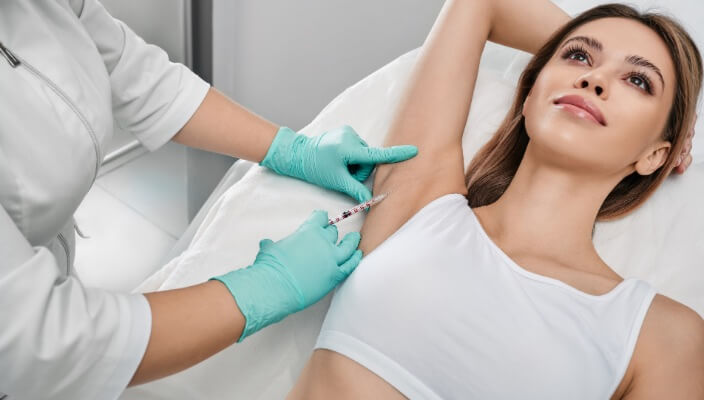
- General Dermatology
While sweating, our body’s natural cooling system helps regulate our internal temperature, too much of a good thing can lead to serious skin issues.
Read More
- Skin Cancer
- Sun Safety
Explore important factors for effective sun protection and safeguarding your skin against the harmful effects of UV radiation.
Read MoreFeatured Products
Check your local office for current stock!
Check your local office for current stock!


